Afghanistan War, CIA Sponsored Terror, Civil Liberties, Criminalizing Dissent, Extraordinary Rendition, FBI Intrusion, Guantanamo, Habeas Corpus, Human Rights, Political Prisoner, Prison Industry, Prosecution of the Bush Administration, Supreme Court, Targeting Muslims, Torture
Podcast: Play in new window | Download
Updates:
——
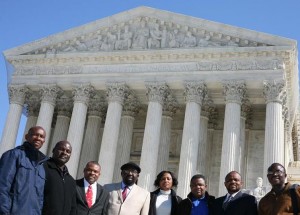
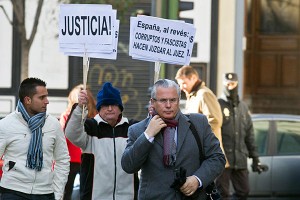
Universal Jurisdiction: Kiobel v. Royal Dutch Shell / Bush 6 Case In Spain
This week the US Supreme Court will decide if corporations could be held liable in U.S. courts for violations of international human rights law in the land mark case Kiobel v. Royal Dutch Petroleum. The case was brought by families of seven Nigerians who were executed by a former military government for protesting Shell’s exploration and development and is pushing to hold corporations accountable for human rights violations. The Supreme Court will also consider how the Alien Tort Statute Claim can be used the Kiobel case. A one sentence law that goes back to 1789 when the first judiciary act was brought in the United States. We’ve discussed this statute with several past guests including attorneys Peter Weiss and Rhonda Copeland who were instrumental in beginning the first cases in which human rights violations, taking place in other countries could actually be litigated in the United States.
We also discuss the recent amicus filing by a group of international human rights organizations and experts before the Spanish Supreme Court. The brief asks the Spanish Supreme Court to overturn a decision not to pursue a criminal case against six former officials from the Bush administration for their role in directing and implementing a systematic torture program. Past shows with Katherine Gallagher.
Attorney Katherine Gallagher:
- The Kiobel case has been in US courts since 2004.
- The claims were brought in the Southern District of New York, under a law from 1789, known as the Alien Tort Statute.
- This law allows non-US citizens to come into a US federal court and assert violations of the Laws of Nations or International Law.
- A recent precedence for this is Citizens United, what happened was that the Second Circuit ruled that corporations could not be held liable for these egregious human rights violations under the Alien Tort Statute.
- The question of corporate liability went up to the Supreme Court first.
- We had 2 judges from a 3 bunch panel in the Second Circuit suddenly come out in the fall of 2009 and say there is no corporate liability. That is the question that went up to the Supreme Court.
- Four other circuits had look at this question and they said of course corporations can be held as liable as an individual, a natural person.
- The Alien Tort Statute allows for a civil suit and civil liability rather than criminal liability.
- The key case from 1980 that CCR brought, the case of Filartiga, this case which the Supreme Court affirmed in 2004 as being on solid legal basis, claims by a Paraguayan, against a Paraguayan for actions that occurred in Paraguay.
- So its very strange that the Supreme Court was asking in a very broad fashion whether the ATS could apply to actions that occurred in another country. That is what the bulk of the cases brought under the ATS have been about.
- Some of the cases where the ATS is used are for some of the most serious violations. Cases of war crimes, crimes against humanity, torture, not your run of the mill case.
- What the justices seem to coalesce around was the issue of whether there’s an alternate forum. If the claims against Shell could have been brought in the UK or in the Netherlands, maybe they don’t need to be brought in the US.
- We’ve seen a trend in the last 20 years of other countries adopting stronger laws that allow for redress, and accountability, so we don’t have to be the world’s policeman.
- There have been 2 cases that percolated up in the last 4 years in Spain.
- The first is a widespread investigation of the torture program then Judge Balthazar Garzon. This is a case looking at torture in Guantanamo, and potentially in Iraq and Afghanistan, looking at the whole U.S. torture program. That case was brought on by 4 named plaintiffs.
- That case is very wide ranging, and willing to go up the chain of command as far as the evidence leads.
- There is a second case that was brought against specific U.S. individuals. They’re known as the Bush 6, including, Jay Bybee, John Yu, David Addington, Alberto Gonzalez. Six men who served as lawyers and argued to have essentially created both the legal structure that enabled the torture program, providing arguements for immunity and protecting participants of the torture program from accountability.
- Spain has a long and proud history of upholding International Law. Spain is where we had the case against Augusto Pinochet in the late 90s.
- We’ll be doing this as long as we need. We need to have accountability, its really critical.
Guest – Katherine Gallagher, Senior Staff Attorney at the Center for Constitutional Rights (CCR), where she focuses on holding individuals, including US and foreign government officials, and corporations, including private military contractors, accountable for serious human rights violations. Among the cases she has worked, or is working, on are international accountability efforts for U.S. officials involved in torture (Spain, Switzerland, Canada); ICC Vatican Officials Prosecution; Arar v. Ashcroft, Corrie v. Caterpillar, Matar v. Dichter, Saleh v. Titan, Al-Quraishi v. Nakhla and L-3, Estate of Atban v. Blackwater.
—————————————————————————————————
CIA Sponsored Terror, Civil Liberties, Guantanamo, Habeas Corpus, Human Rights, Political Prisoner, Prison Industry, Targeting Muslims, Torture, Truth to Power
Podcast: Play in new window | Download
Updates:
- US Refuses To Extradite Former Bolivian President
- Jose Padilla Re-Sentencing
- Ward Churchill Case Update – Are University Board of Regents Immune?
- Armenia Protests Extradition of Axe Murderer
——

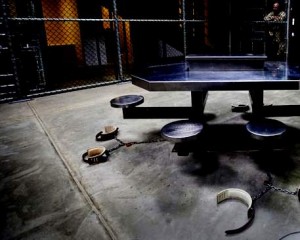

Department of Defense Declassifies Report on Alleged Drugging of Detainees
Hosts discuss a recently declassified report on alleged drugging of Guantanamo detainees with Attorney Shane Kadidal.
Guest – Attorney Shane Kadidal, senior managing attorney of the Guantánamo Global Justice Initiative at the Center for Constitutional Rights in New York City. He is a graduate of the Yale Law School and a former law clerk to Judge Kermit Lipez of the United States Court of Appeals for the First Circuit. In his eight years at the Center, he has worked on a number of significant cases in the wake of 9/11, including the Center’s challenges to the detention of prisoners at Guantánamo Bay (among them torture victim Mohammed al Qahtani and former CIA ghost detainee Majid Khan), which have twice reached the Supreme Court, and several cases arising out of the post-9/11 domestic immigration sweeps.
——

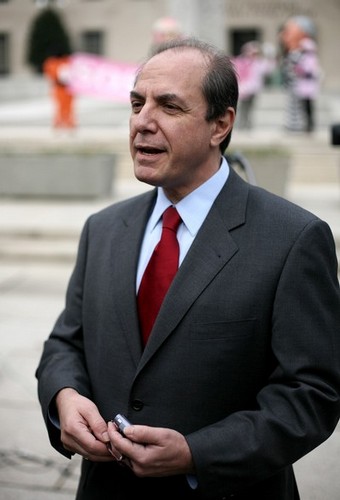
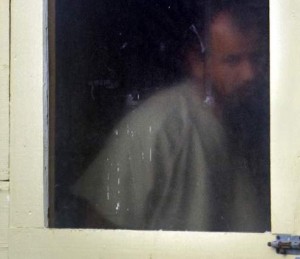
Adnan Latif – the Face of Indefinite Detention – Dies at Guantánamo
A prisoner held at Guantanamo Bay Naval Base since 2002 died last week. Adnan Farhan Abdul Latif was a 32 year old from Yemen who was allegedly suicidal and mentally ill. Latif won a U.S. court order for his release but it was overturned on appeal. In 2009, President Obama imposed a moratorium on Guantanamo prisoners from Yemen after a Yemeni trained Nigerian was found with a bomb in his underwear on a Detroit bound plane in 2009. Latif is the ninth prisoner to die at Guantanamo Bay prison.
Attorney David Remes:
- We decided to put out a statement by the lawyers. We wanted to call his family but the government said let the ICRC do it.
- He was approved in 2004, he was approved in 2007, and approved in 2009 for transfer out of Guantanamo.
- Adnan filed a habeas corpus petitions in 2004. In 2008 those cases began to move forward, Adnan was among them. He won his habeas case. The whole case against him hinged on an intelligence report that the district court judge said was unreliable. The case was appealed by the Obama Administration.
- He was a very sweet man, he was small, he was thin.
- He was very sensitive and a fine poet. He felt everything more keenly, perhaps more keenly than any of the other detainees.
- He felt that his spirit was being crushed. That he was always being roughed up by the guards. He was on long hunger strikes, he was held in isolation for the majority of his time in Guantanamo.
- He was mentally very fragile.
- At one point in my representation of him in 2009, he slit his wrists as I was speaking with him . . by chipping formica from under the table and cutting into his vein let the blood drip into a little cup and then threw his blood on me.
- I took an inventory of his various bumps, bruises and swellings. It was almost like a doctor’s visit.
- He was a small guy.
- He could be very lucid, he was very intelligent.
- You just have to question the NCIS reports from the beginning.
- Whatever the conclusions that were announced it was Guantanamo that killed Adnan. It ruined his health, it ruined his spirit, it may have led him to suicide.
Guest – Attorney David Remes, a human rights lawyer who has been deeply involved in the litigation on behalf of Guantanamo prisoners since 2004. He represents 16 Yemenis and has made several visits to Yemen to press for his clients’ release and brief their families. He was among the first lawyers to visit Guantanamo after the Supreme Court ruled in Rasul v. Bush in 2004 that the prisoners had a right to legal counsel.
————————————————————————–
Afghanistan War, CIA Sponsored Terror, Civil Liberties, Criminalizing Dissent, Extraordinary Rendition, FBI Intrusion, Guantanamo, Habeas Corpus, Human Rights, Iraq War, Military Tribunal, Political Prisoner, Targeting Muslims, Torture
Podcast: Play in new window | Download
Updates
- Michael Ratner: Update on Verdict – Corrie v State of Israel
- Cardinal Dolan Who Approved Payoffs For Priests Accused of Sex Abuse To Leave Priesthood Gives Speech At RNC and Closing Speech for DNC
—–

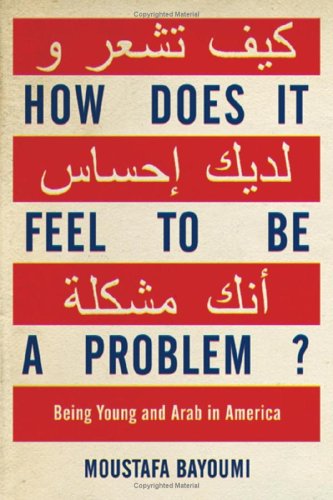

Islamophobia: Anatomy of an American Panic
In the last few weeks, 8 places of worship connected with South Asians or Middle Easterners have been targets in the United States. As many listeners know, six people were murdered at a Sikh temple in Oak Creek, Wisconsin but later that evening a mosque in Joplin Missouri was burned down. Other targets recently included mosques in Rhode Island, Southern California, Oklahoma City and Dearborn, Michigan. These tragic events mark another wave of existential Muslim threats inciting fear and violence against Middle Eastern people while helping to justify the ongoing war on terror.
According to the University of Maryland’s National Consortium for the Study of Terrorism and Response to Terrorism, since 9/11 to 2010 there have been 155 terror incidents in the U.S., and exactly two of them or 1.3 percent have been attributed to international Islamist terror groups. The majority of events involved individuals such as anti-abortionists, right-wing extremists, or extreme animal rights activists.
The Nation Magazine has highlighted the disproportional focus put on Muslim communities in a special issue titled “Islamophobia: Anatomy of an American Panic.” We talk with journalist Lizzy Ratner and authors Deepa Kumar and Moustafa Bayoumi who contributed articles to the Nation Magazine special.
Lizzy Ratner:
- The Nation did a special issue about Islamophobia. It came out in the beginning of July. You can still find the majority of the articles online. The real credit has to go to Abdeen Jabara whose idea this really was.
- The civil rights attorney came to me last year and said the anti-Arab, anti-Muslim has reached fever-pitch.
- So I began to do some research about what exactly was going on and very quickly compiled a massive roster of possible articles.
- For the most part, the Left and Progressives have been far too quiet.
- This bigotry that is flourishing right now has a real history, it’s not a just a product of 9/11 and the post 9/11 era.
- Some of the seeds of bigotry have to do with the role of the United States historically in the Middle East.
- Islamophobia served an agenda and a number of purposes.
Guest – New York City journalist Lizzy Ratner has written extensively for the Nation and Alternet on issues involving Islamophobia. Lizzy is also co-editor of The Goldstone Report: The Legacy of the Landmark Investigation of the Gaza Conflict.
——
Moustafa Bayoumi:
- I was happy to see that the Nation was happy to take on the question of Islamophobia for a double issue.
- There’s been a shift in the last ten years from paranoia around security to a paranoia about the basic facts of Muslim life in the United States.
- In a way you can say it’s a shift from security to culture.
- At any stage, anything that has to do with a daily concerns about living a life as a Muslim American, somehow now becomes charged with sedition. Part of the funding of the anti-Muslim movement in the United States is basic conservative politics and extreme conservative politics.
- And also due to the Israel-Palestine conflict. So people who want to come aboard Israel will make a very distorted picture of what Muslim life is like.
- The NYPD has now a decade long history of “othering” the Muslim-American community.
- The NYPD had been screening The New Jihad for its new recruits.
- It’s a crazy film saying that all of the American Muslims are here as a fifth column ready to pounce. It’s a training film for new recruits. That’s true for the Pentagon and the FBI.
- Muslim Americans are still seen as perpetual foreigners.
- That Muslim American rights are different than everyone else’s rights.
- You’re average American consumer of media does not relate to the victims of the Oak Creek massacre because they don’t see them as being part of the American family.
- They asked American’s in this poll, and 62 percent of the population has never met a Muslim.
- If you’ve never met a Muslim then it’s very easy to believe all these boogey man ideas. That’s why media plays an important role in this issue.
- The FBI (training manual) said that it was in the nature of Muslims to try to take over this country.
Guest – Author Moustafa Bayoumi wrote Fear and Loathing of Islam joins us, his book : Being Young and Arab in America, won an American Book Award and the Arab American Book Award for non-fiction. He is also a professor of English at Brooklyn College, City University of New York.
——
Deepa Kumar:
- As of late the anti-Muslim statements coming from Michelle Bachmann, Joe Walsh, all of whom are Republicans, there is a sense of which it is the Republicans who are responsible for Islamophobia, for the demonization of Muslims and so on.
- This brand of the war on terror gets hatched and part of that was language developed in the 1990s, called the Clash of Civilizations. It was a man named Bernard Lewis who first penned this term.
- It’s not so much we’re going to carry out revenge on Osama Bin Laden but that we’re going to rescue Afghan women. In the case of Iraq, we’re going to bring democracy when no weapons of mass destruction were found.
- This rhetoric has a long history it goes back to the 19th century.
- Both presidents need Islamophobia. They need to generate this fear and hatred of the “Muslim other.”
- Operation Boulder
- The Jonathan Institute holds this conference in Jerusalem . . Islamofacism, the roots are sown at that conference.
- The idea of this menacing Muslim enemy is not new. It was not something created after 9/11 but in fact it goes back a millennium.
- It’s about political goals but religious rhetoric gets used. Same thing with the re-conquest of Spain.
- The Islamophobic rhetoric is one that’s mobilized by the elite.
- I hold both Republicans and Democrats responsible. These rabid right wingers get their confidence from mainstream figures like Walsh, like Bachmann and others.
- The sad reality is that the Democrats have done nothing to counter this.
- The Democrats are not an ally in this fight.
- I take inspiration from 2 movements in the sixties, the civil rights movement and the anti-war movement. I think these 2 strategies need to come together in fighting Islamophobia.
- We have to take on both the far right and challenge the priorities of empire and bring together a multiracial coalition that can actually change a generation.
- It was President Clinton with Anti-Terrorism and Effective Death Penalty Act in 1996 which made it legal to actually deport people with secret evidence. We know this lays the basis for the Patriot Act. This has really been a bipartisan project in the interest of empire.
Guest – Deepa Kumar, an Associate Professor of Media Studies and Middle Eastern Studies at Rutgers University. Her work is driven by an active engagement with the key issues that characterize our era–neoliberalism and imperialism. Her first book, Outside the Box: Corporate Media, Globalization and the UPS Strike (University of Illinois Press, 2007), is about the power of collective struggle in effectively challenging the priorities of neoliberalism.
———————————————–
CIA Sponsored Terror, Civil Liberties, Guantanamo, Habeas Corpus, Human Rights, Torture, Truth to Power
Podcast: Play in new window | Download
Updates:
——


Quebec Students Protests: Largest Act of Civil Disobedience In Canadian History
Social unrest in Montreal continues unabated with nightly protests as thousands fill the streets in what is now the largest act of civil disobedience in Canadian history. Protests against tuition hikes and austerity are evolving into community assemblies, and also into increasingly popular pots and pans protests. These larger protests against tuition hikes and austerity turn into community assemblies and also the loud pots and pans protests. In response, police randomly searching and detaining people wearing the red square in solidarity of the movement and try to break up each emerging protest.
Gabriel Nadeau – Dubois:
- The strikes started in the beginning of February, and the debate about tuition hikes became a larger debate about privatization. It started as a student strike and is now a popular movement.
- The context in Quebec is the reason we were able to build a movement. There has been so much dissatisfaction toward the government in the last 10 years.
- Many other workers saw an opportunity to go into the street because a lot of people were very angry.
- Bill 78 is a special law. This bill has 3 major sections.
- The first section suspends the Winter semester with the objective to stop the student strikes.
- Now we’re in sort of a lock out these days. The Winter semester will start in August.
- The main objective of the bill is to break the mobilization.
- We have seen thousands of illegal protests of civil disobedience.
- Last week there were hundreds of police in the subway station, who were systematically and illegally searching the students and the citizens who were wearing the red square.
- The bad thing about too many protests is the citizens get used to seeing police brutality.
- We currently contesting the law in front of the court. We are trying to suspend the law and declare it unconstitutional.
- We are planning 2 major protests this summer one on June 22, 2012 and one on July 22.
- What we’re asking for is still very simple stop the increase of tuition fees in order to keep the universities accessible to everyone
Guest – Gabriel Nadeau – Dubois, the co- spokesperson of the Coalition off the Solidarity Trade Union Association for Student (aka CLASS), which is opposed, since the beginning of this year , with rising tuition fees in Quebec decreed by the Jean Charest government.
——-

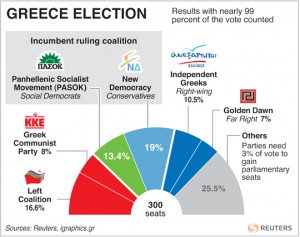
Austerity and Second Round of Elections in Greece
The elections in Greece have just occurred. We talk with Greek-American National Lawyers Guild attorney Eric Poulos about the left, right and center parties in Greece. Eric explains party platforms and makes a few predictions on election outcomes.
Attorney Eric Poulos:
- Greece has got money from the European Union, not to bail out Greece, it’s a misnomer in the press, it’s to bail out the banks. It’s going to pay off debt service to banks.
- There’s no stimulus to create jobs in Greece, jobs are being lost.
- Unemployment is up 20-25 percent, among youth it’s 50 percent.
- If they can, Greeks are leaving the country, taking their money out of the banks.
- Pharmacies are not filling prescriptions, doctors are not getting reimbursed from the state.
- Political party Syriza emerged from the last election. This is run off election from one that occurred in May where there was no clear victor.
- Syriza’s a left wing party that emerged from almost obscurity. Syriza is made up of many forces. It’s a coalition.
- Looks like the right wing party might be gaining votes. Syriza wants to cancel the memorandum which triggered the loan from the EU.
- It wants a moratorium on the payment of the debt, and it has various measures to deal with corruption, it wants remove immunity.
- The memorandum imposed austerity measures which Greece has tried to fulfill, and has resulted in devastation.
- Even the mainstream parties that agreed with the memorandum say they want to renegotiate that agreement.
- Greece has huge military contracts with German and French defense contractors, which they will not let Greece out of. The far left says to cancel those contracts.
- There is an out and out fascist party that got almost 7 percent of the vote. Golden Dawn.
- There’s a huge anti-immigrant sentiment that these far right parties have tapped into.
- I think conservatives will gain. I think Syriza will gain
Guest – Attorney Eric Poulos, writer and National Lawyers Guild member.
———–


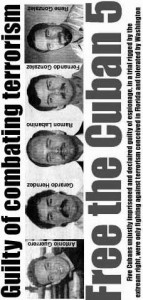
Cuban Five Case Update: Government Paid Media Helped Shape Public Perception
The Cuban Five were convicted 14 years ago this month on conspiracy to commit espionage at some time in the future. Recently, prominent First Amendment attorney Martin Garbus joined the case of the five. He’s concentrating his legal efforts on US government paid journalists in Miami who received hundreds and thousands of dollars of payments from the office of Cuba broadcasting. A fact unknown to the defense at the time of the trial. The reporters covered the case in an almost hysterical and prejudicial fashion.
Attorney Martin Garbus:
- We’re trying to get all the facts nailed down on the paid journalists issue.
- The motion is to get discovery of those facts and then to proceed to the hearings to reverse the convictions.
- What we’ve been trying to do for the last 15 years is trying to get these facts and we’ve failed to do it.
- What you have is a cauldron, when this is in the public debate. It’s not the just the question of the media being influenced, not just the question of the jury pool being saturated,
- its not just the question of the jurors themselves being saturated.
- We understand that the government was paying people who were on major newspapers, major media, substantial sums of money to write stories to get indictments, as well as convictions, and to influence the whole question of how you charge people.
- In a normal world, these defendants would not have been charged.
- It’s not just the question of the media effecting the jury pool, it goes long before that.
- Given the circumstances, one would expect the prosecutors to try and get the highest charges that they could.
- It’s government legal influence at every single part of the legal process.
- You had both governments trying to de-fang very bad situations.
- Instead of stopping the planes, they chose instead 18-17 months later, they chose to arrest these five people whose names they knew because it was part of the cooperation pact.
- There were many people in Miami who didn’t like the idea of the Cuban government and the American government through government representatives, trying to cut back the Miami terrorists.
- A lot of them became rogue agents and trying to ruin whatever cooperation there was.
- Its seems apparent that it was purely a political prosecution.
- There’s a reason why the government has been withholding documents.
- I don’t know of any other case where you’re going to get an accumulation of facts in a situation that’s as explosive as this, given the traditional historic politics as what was going on at that time.
- You had two judges saying this was a fire storm.
Guest – Attorney Martin Garbus, one of the country’s leading trial lawyers. He has appeared before the United States Supreme Court and the highest state and federal courts in the nation. Time Magazine has named him “legendary . . . one of the best trial lawyers in the country.” He’s also known as the most prominent First Amendment lawyer.
————————————————————–
Civil Liberties, Criminalizing Dissent, Guantanamo, Habeas Corpus, Human Rights, Surveillance, Targeting Muslims, War Resister
Podcast: Play in new window | Download
Updates:
——-
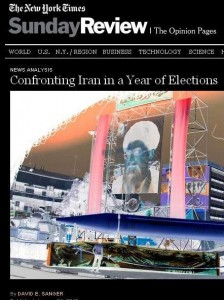

Weapons of Mass Destruction Part 2: Iran
Similar to accusing the Iraqi government for stockpiling weapons of mass destruction as a pretext for a military invasion, Israeli and US intelligence assert that Iran is bent on becoming a nuclear weapons state by enriching uranium. This narrative as many listeners know has been going for many years In the New York Times article titled Confronting Iran In A Year of Elections, New York Time’s chief Washington correspondent David Sanger platforms his article on the assumption there is evidence Iran is making nuclear weapons. We talk today with Professor Bill Beeman author of The “Great Satan” vs. the “Mad Mullahs”: How the United States and Iran Demonize Each Other. Beeman has criticized the New York Times and other media for falsely claiming there is evidence Iran is developing nuclear weapons. He also points out that Iran has a right to enrich uranium for peaceful purposes and that their facilities are monitored by the International Atomic Energy Agency.
Professor William Beeman:
- First of all its very important to understand there is no evidence anywhere that Iran has a nuclear weapons program. Every report from the IAEA has reaffirmed that Iran has not diverted any nuclear material for military purposes, including the last report in November 2011.
- The news media, especially the New York Times, I must tell you has distorted the IAEA report in order to make it seem as if Iran is building nuclear weapons.
- We have no evidence to the contrary.
- The New York Times article written by an Israeli journalist not only has actually attracted hundreds and hundreds of objections. Because of its war mongering tone and because it contains a lot of inaccuracies.
- Clapper claims Iran is most likely to attack the United States based on the incident that took place a few months ago.
- There are some countries like Japan that have said outright that they intend to develop the capacity to construct nuclear weapons. Iran has said it doesn’t intend to do this.
- The United States is not coming after Japan. . or Brazil which has issued a similar statement or any of the 20 countries that don’t have weapons but are now enriching uranium.
- When Colin Powell went before the United Nations saying Iraq had weapons of mass destruction I wrote a column saying its simply not true.
- That got me on the Bill O’Reilly show where I had a big arguement with him about this.
- I said simply show us the actual proof.
- My feeling at the time was that Colin Powell had been badly misused by the Bush administration in order to sell a false picture of what was actually going on in Iraq.
- Iran was given uranium many years ago during the time of the Shah to use in a medical reactor to develop isotopes for the treatment of cancer.
- Every scrap of uranium that they’ve been working with is under inspection.
- The IAEA is watching the process as it goes on every day.
- They say if Iran wants to wipe Israel off the map they’re probably going to use nuclear weapons.
- The joke is of course we knew Iran was enriching uranium, because we started the enriching program 40 years ago.
- The idea that it was carried out in secret, quite frankly revealed the extraordinary ignorance of the Bush Administration.
- They have a continual drum beat to attack Iran. The aim is not to stop Iran’s nuclear program because Iran’s nuclear program is anemic. The aim is regime change.
Guest – Professor William O. Beeman, Professor and Chair of Anthropology and specialist in Middle East Studies at the University of Minnesota, Minneapolis-St. Paul Minnesota, formerly of Brown University. It includes current publications on Middle Eastern affairs, especially Iran, Iraq, Afghanistan and the Persian Gulf region; anthropology; linguistics; performance; opera; things Japanese and Central Asian.
———————————————–
Civil Liberties, Criminalizing Dissent, Guantanamo, Habeas Corpus, Human Rights, Political Prisoner, Surveillance, Targeting Muslims, Torture, Truth to Power
Podcast: Play in new window | Download
Updates:
- Michael Smith visits political prisoner David Gilbert and discusses David’s book Love and Struggle.
- Genocide Bill Angers Turks – It Was Genocide Radio Documentary by Heidi Boghosian
- Supreme Court: GPS Tracking Device Illegal
- Lizzy Ratner Co-hosts Beyond the Pale on WBAI
—

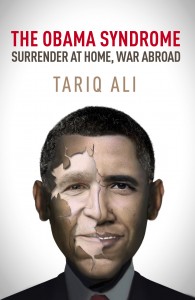
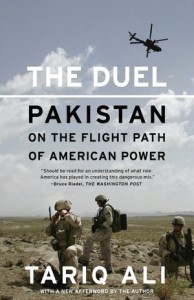
Tariq Ali: Turning Points in the History of Imperialism
Today we’re joined by internationally renowned writer and activist Tariq Ali. Tariq is visiting from London where he is editor of the New Left Review.
A writer and filmmaker, Tariq has written more than 2 dozen books on world history and politics, including The Duel: Pakistan on the Flight Path of American Power, The Obama Syndrome and On History. We talk specifically about several turning points in global history, the Occupy movement and US elections. .
Tariq Ali:
- The think the first World War was crucial but it wasn’t the war itself it was the consequences of that war. Here you had huge empires.
- The Russian revolution challenged capitalism frontally and its leaders said we want Europe to be with us, on our own we can’t do it. We need the Germans, we need a German revolution. That frightened the capitalist class globally.
- Woodrow Wilson, decided that the time had come to intervene. 22 countries came to intervene.
- This intervention made it impossible for the early infant Soviet Union to achieve what it wanted to achieve.
- The Second World War was an effort by the German ruling class to get its share of the world market in countries.
- The US helped rebuild Japan and Germany. They helped build France and Britain by the Marshal Plan and that has never been done by a big imperial power before.
- They managed to get the Soviet Union to implode by having an arms race. The Russians fell into their trap and decided to go for the arms race, had they not history might have been different.
- I hope the Chinese do not fall into the same trap, threatened by Obama’s puny little bases in Australia.
- People, early settlers in the United States got land totally free and they took it and that created the belief in the American psyche of private property.
- The Soviet Union imploded because the people lost faith in the system.
- The entire elite in the United States and Western Europe is wedded to the Washington consensus that emerged after the collapse of communism. The center piece of this consensus was a system which believed in market forces. I refer to it as market fundamentalism.
- We are confronting the extremism of the center and the result of this is no alternatives exist within mainstream politics. The effect that this is having is hollowing out democracy itself.
- Occupy: What we need is for these movements to call an assembly nationally and discuss a charter of demands for progressive America which need only be ten demands but something around which people can rally. I think its a movement that should be created bearing what the needs of ordinary people are.
- In order to understand the laws of motion of capital, you have to read Marx. It’s true capitalism has become much much more complex. Zombie capitalism, or fictitious capitalism, where money is used to make more money.
- It’s not money that’s creating productive goods.
- I had written a book on South American because I got very engaged in the Venezuela-Boliverian struggle and got to know Chavez very well.
- If Americans had access to Cuban medicine, the pharmaceutical companies would collapse, they would never let it happen.
Guest – Tariq Ali, writer, journalist and film-maker, born in Lahore and educated at Oxford University. He writes regularly for a range of publications including The Guardian and The London Review of Books. He has written more than a dozen books including non-fiction as well as scripts for both stage and screen.
———————————






















